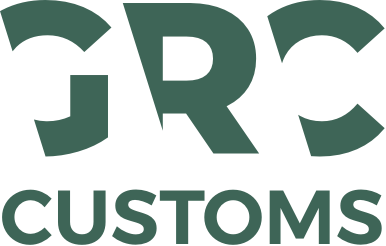Every compliance program essentially revolves around the necessity to determine, from potential risks, the measures a company must take to effectively mitigate these risks and thereby comply with established customs standards.
In a globalized world, international trade has become an essential part of the economy. Customs processes and compliance with laws and regulations play a significant role. Therefore, assessing the potential pitfalls of customs processes should be an integral aspect of modern customs management. It is crucial for companies to have a good understanding of the risks they face to prevent issues and ensure the efficiency of trade flows.
However, in our daily practice, we often observe that companies do not always act from this perspective. Especially companies that have fully outsourced customs processes are often unaware of the potential consequences of lacking adequate measures to control risks. Often, these are not even identified.
For companies operating internationally, an AEO (Authorized Economic Operator) license helps build awareness. The AEO license focuses on risks and their control. In this context, terms like proper administration and appropriate safety regulations make it clear that the type of risks, the likelihood of occurrence, and potential consequences ultimately determine the measures a company must take to comply with AEO criteria and be compliant.
Identification of vulnerabilities
Assessing the risks of customs processes helps identify vulnerabilities and potential weaknesses in the company. By mapping these out, companies can proactively take measures to prevent potential breaches of laws and regulations. This involves not only physical processes related to site security and the risk of pilferage but also the protection of data, which is a source of information that, if in the wrong hands, could lead to manipulation and infiltration.
Safety and Security
Identifying customs risks helps companies ensure the safety and security of their goods in international trade transactions. This is particularly important given the increasing security threats and risks in global trade.
It is not just about preventing smuggling or fraudulent activities. It also contributes to the shared task of ensuring safety and security. In today’s world, where terrorist threats and other forms of organized crime exist, it is crucial to carefully monitor the cross-border movement of goods. By identifying risks, appropriate measures can be taken to prevent problems.
Reducing delays and costs
A thorough inventory of customs risks can lead to significant time and cost savings. By knowing the potential risks, companies can proactively take measures to avoid delays in customs processes. This contributes to better cost control, as delays in customs processes can lead to higher storage costs, lost sales opportunities, and unnecessary administrative burden for companies. Minimizing stuck goods improves supply chain efficiency and enhances competitiveness.
Competitiveness
A deep understanding of customs risks enables companies to make their trade processes more efficient and reliable than competitors. By being prepared for potential risks, companies can improve their competitive position and offer their customers better services and products.
In conclusion, inventorying risks of customs processes is crucial to ensure the safety and security of international trade, promote compliance with laws and regulations, and facilitate efficient trade flows. Companies benefit from taking risk assessments seriously and implementing measures to prevent potential problems.
